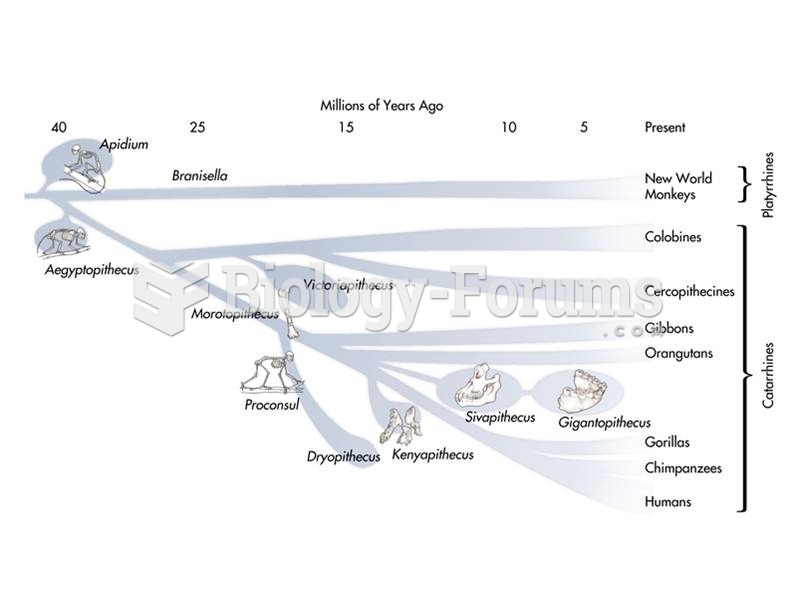|
|
|
Thyroid conditions cause a higher risk of fibromyalgia and chronic fatigue syndrome.
By definition, when a medication is administered intravenously, its bioavailability is 100%.
Looking at the sun may not only cause headache and distort your vision temporarily, but it can also cause permanent eye damage. Any exposure to sunlight adds to the cumulative effects of ultraviolet (UV) radiation on your eyes. UV exposure has been linked to eye disorders such as macular degeneration, solar retinitis, and corneal dystrophies.
On average, the stomach produces 2 L of hydrochloric acid per day.
The oldest recorded age was 122. Madame Jeanne Calment was born in France in 1875 and died in 1997. She was a vegetarian and loved olive oil, port wine, and chocolate.







